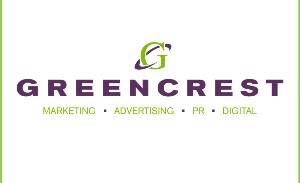What is Search Marketing?
The term “search marketing” refers to the process of gaining traffic and visibility from search engines — such as Google and Bing — through either paid or unpaid efforts.
When we talk about search marketing, we’re talking about strategies that help businesses rank higher than the competition. However, earning that No. 1 spot on Google is not the end goal — the reason people are so intrigued by search marketing — and rightly so — is because it helps businesses gain leads and sales.
Why does Search Marketing matter?
Research shows that more than 80 percent of customers conduct an online search before making a purchase. In addition, more than 60 percent of the buyers that contact you for more information about your product or service have already conducted research online and narrowed down a short list of potential vendors. Is there any reason to doubt how critical it is that your company has an immediate presence within the search results for words and phrases that relate to your business?
Search engines such as Google, Bing and Yahoo exist to help people find the information they are looking for on the Internet. The search engines crawl billions of websites, indexing specific words and phrases to produce a relevant match to the words people use in their searches.
There are two ways to ensure that your website shows up within search results: search engine optimization (SEO) and search advertising. And there are pros and cons you should be aware of in order to determine whether or not a search advertising program is a good investment for your business.
Search Engine Marketing versus Search Engine Optimization
Search marketing is an umbrella term for two distinguishable efforts on behalf of the marketer: SEO and SEM. SEO is typically used to describe unpaid or “free” search marketing strategies,. SEM, then, refers to paid efforts.
SEO is a long-term strategy that requires a dedicated investment over time. When it comes to SEO, content is king, and perhaps the most important SEO factor as it relates to good content is strong, relevant keywords. According to Search Engine Land, “You want to create content using those keywords, the actual search terms people are using, so you can produce content that effectively ‘answers’ that query.”
SEM, on the other hand, is a steroid shot that instantly boosts traffic — assuming that campaign is well-built, that is. SEM strategies include things like pay-per click (PPC) campaigns, social media advertising, native advertising and more.
Search Engine Marketing Pros
Reach the Right People…
Knowing your target market allows you to develop marketing messages that appeal specifically to them, and developing effective communication for your particular audience yields a better chance of converting leads. There are many settings and targeting options available within an online advertising campaign. If the campaign is set up and managed strategically, every ad click should come from someone within the desired target audience.
…At the right Time
When you are targeting a potential customer is just as important as whom you are targeting when it comes to search marketing. According to Google, being found by potential customers at the precise moment they’re searching online is key.
Immediate Results
Search engine advertising makes it possible for a website to immediately show up on the first page of search results.
Increased Brand Awareness
When an ad displays at the top of the search results page, many people within the target audience will see the ad — even if they don’t click on it. These impressions help build name recognition.
Budget Control
For pay-per-click (PPC) campaigns, you only pay when someone clicks on your ad. Daily and monthly budgets, as well as maximum bids, can be established so that the campaign stays within budget.
Clear ROI
Campaign goals and tracking can be established to make it easy to track when a website visitor converts to a lead or makes a purchase online. Online reports directly link marketing spend to return-on-investment for search engine advertising.
Search Engine Marketing Cons
Highly Competitive
Popular keywords in competitive industries require bigger budgets to essentially pay to play. Typically bigger companies have larger budgets and SEO experts managing their search advertising campaigns. Therefore, companies with smaller budgets must be even more strategic to drive search results and should always engage with an SEO expert.
Highly Specialized Knowledge
To maximize a budget and campaign performance requires specialized knowledge of how to correctly and strategically set up and manage a campaign. The management platforms have complex interfaces, settings and jargon. Google and Bing offer directories of certified professionals who can help.
Google Partner agencies, like GREENCREST, can be a great resource for companies interested in maximizing their search marketing efforts. Being dubbed a “Google Partner” is more than just a badge on an agency’s website — it shows that an agency has passed several Google Ads product certification exams and are up to date with the latest product knowledge. In other words, according to Google, “they earned it.”
Time Consuming
It takes time to research keywords and create an effective search ad campaign. Once the campaign is live, it requires constant optimization—daily or weekly. The campaign performs in a live environment and needs to be reviewed, tweaked and changed to produce the best results. Also be mindful that search platforms regularly change algorithms as well as management interfaces, which requires keeping up with ongoing updates.
For companies serious about growth, GREENCREST recommends working side-by-side with a Google Partner Agency to ensure your company ends up at the top of Google search results. Contact us today to get started: http://greencrest.com/contact-greencrest/.


